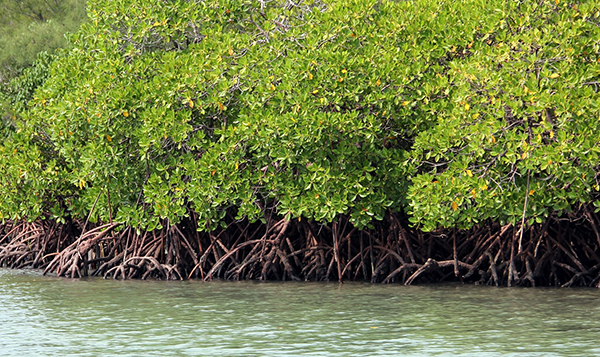Mangroves Biodiversity & Ecosystem
The course has been designed to build expertise in mangrove biology, ecology, assessment, management, and restoration and is predominantly aimed at young academics, professionals, managers, and any other interested individuals, especially from developing countries.


Course Start
Jan 01, 2021

Course End
Dec 31, 2027
Duration
05:00 hours
Certificate
Yes
Introduction
With a partnership between UNU-INWEH and The Nature Conservancy, this curriculum was built to bring awareness of the importance of Mangroves to healthy ecosystems and human communities. The open-access Mangroves Course is designed to build expertise in mangrove biology, ecology, assessment, management, and restoration and is predominantly aimed at young academics, professionals, managers, and any other interested individuals, especially from developing countries. The course provides the opportunity for professionals to build their capacity without taking personal leave to attend classes. While several aspects related to mangrove ecosystems and their management have been reasonably well-developed empirically and academically, there is no overall comprehensive curriculum that touches on all aspects of mangrove ecosystems and few universities offer graduate-level courses on this topic.
This course offers a comprehensive understanding of mangrove ecosystems, including their evolution, biodiversity, ecological roles, and connections to human communities. Participants will explore the dynamics of mangrove structure and function, the significance of floral and faunal diversity, and the critical role mangroves play in climate change mitigation and coastal defense. Additionally, the course delves into restoration strategies, economic valuation, and policy frameworks for effective conservation and management. The level distance course on Mangrove Ecosystems offers the following benefits:
- It creates a generation of students who have had structured training on the topic which they can develop further in research or apply in the field.
- It leads to more research work undertaken in this area.
- It exposes university professors and specialists to this field of practice so they can better serve as technical advisors, address knowledge gaps through further study, and propose new applications that are practicable and up-scalable.
- It generates more interdisciplinary interest and knowledge products. This course aims to address the critical knowledge gaps in mangrove ecosystems by exploring key topics such as:
- Mangrove definition, structure and function,
- Mangroves Distribution, Area and Biogeographic Patterns
- Ecology and biodiversity of mangroves
- Socio-economic benefits and cultural significance
- Restoration and conservation strategies
- Policy frameworks and global commitments
- Climate change mitigation potential
Programme Officer Principal Researcher: Water SecurityCourse Developed by
Hanneke Van Lavieren
United Nations University Institute for Water, Environment and Health
Course Reviewer
Nidhi Nagabhatla
United Nations University Institute for Water, Environment and Health